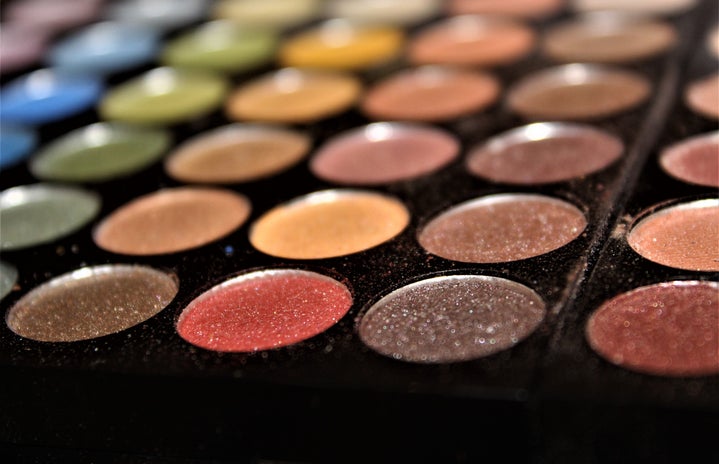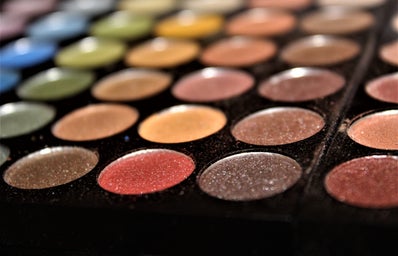You’ve probably tried doing a face mask or two during our time at uni when you’re skin’s got a problem. But here at Her Campus we don’t believe that you need a special occasion for a face mask. You can use several throughout the week in your every day routine.
There are so many different types from hydrating, moisturising, exfoliating, deep cleansing, and brightening- if your skin has a problem then there is more than likely a face mask to help fix it. So, we’ve created a guide below to help you make sure you’re using the right one for your skin needs.
Hydrating
There is a big difference between dehydrated and dry skin. A person with oily skin can still have dehydrated skin, hence the word combination skin. It basically means that your skin does not have enough water in it. While the wind is still blowing outside and the heating is on, then nearly all of us are probably in need of a hydrating mask. So drink up plenty of water, eat lots of cucumber and melon and try looking out for a mask with hylauronic acid already in it.
This little molecule can absorb up to 1000 times its own weight in water, so will drench your skin in moisture as it needs. These suggestions have been good to us: Hydraluron Boosting Masks or La Roche Posay’s Hydraphase Intense Mask
If you’re making your own, then try adding honey or rose water.
Moisturising:
So, for those of you have permanent dry skin all year round or your skin needs soothing, then you want masks with lots of Vitamin E in them. So look for almond oil, tryglicarides and vitamin E. These not only smell amazing but will give you back some much wanted glow quickly. The Origins Mega Mushroom Skin-Calming Mask and the Avene Soothing Moisture Mask or the Superfacialist Rose Face Mask is a little cheaper.
When making your own then remember that avocado is one the best sources of Vitamin E so use plenty of this to keep your skin moisturised.
When using both of the above masks remember that there is no time limit for these. So for an extra treat put them on overnight and then just use your usual cleanser in the morning to wipe them off.
Exfoliating:
We already probably have heard of the benefits of exfoliating our skin. If you suffer from clogged pores, black heads and the odd spot then you might need to start adding at least a weekly exfoliating mask into your regime.
Exfoliating products have greatly moved on from the days of a little apricot scrub. It is actually quite rare that an exfoliant with beads in it will be best for your face. If you have sensitive skin then the beads will just irritate the skin and bring it out in redness. If you have acne or any spots then scrubbing the breakout is just going to break the spot and spread the infection over the whole face- not what we want! As much as we may hate our spots, we have to look after them through moisturising them and putting spot gel on them- not by drying out the skin like crazy!
So what kind of exfoliant should you be using then? A lot of people have recently got into the electronic exfoliants such as the Clarisonic, which when used a few times a week can just lift off all the dead skin cells and reveal glowing skin.
The other alternative, which works well for most types of skin is the chemical exfoliant. It may sound scary to put ‘chemicals’ onto your face, but most of these are fruit acids. Look for ingredients like glycolic acid, lactic acid and papaya. Doing these once a week will make your skin look amazing and are amazingly gentle the skin. Just remember that you must wear a separate SPF when using these during the day.
Our favourite picks are the Dermalogica Gentle Cream Exfoliant or Clarins Gentle Exfolator Brightening Toner. They may seem expensive but will probably last you at least half a year when you’re only using them once a week. Plus think of how much more of an investment your skin is than that bag for the long run!
If making your own then try natural yoghurt, as this has natural occurring lactic acid in. It might not work as well as the above, but is a great cheaper option.
[pagebreak]
Deep Cleansing:
These are the clay masks, which normally make you look like the colour of monster. If you have any type of breakout or think one might be coming your way, then this is what you need. They also can control any oiliness. Remember that you don’t have to use a face mask all over the face; just the areas that you need it. So if you just get congested skin on your chin, then put one of these masks on your t-zone and a hydrating one on your cheeks. These masks will lift out all the nasty stuff that’s in your skin, to prevent it from breaking out. Plus, any current break out will be significantly reduced with these. If you have combination skin (which most of us do), then after washing these off with warm water, put on a hydrating or moisturising mask for an amazing skin session. Try out Neutrogena’s Visibly Clear Skin Mask or Liz Earle’s Deep Cleansing Mask. If you have a bit of your student loan left then the Origins Clear Improvement Clay mask is fantastic too.
If you want to make your own try strawberries. They naturally have sacylic acid in them, which is great at clearing out spots.
Sheet Masks:
These are a relatively new addition to our face routines, but are very popular in Asia. These are literally sheets of paper infused with goodies that you put on your face. These are normally moisturising but can also be brightening, hydrating, firming and anything else you can possibly think of. If you’re feeling hungover then these are some of the best things to put on your face for half an hour, as the smells are relaxing and also really cooling. Once you are done, take off the mask and pat in any of the remaining moisture into your face.
Brightening Masks:
Finally, we have the brightening masks. These are great if your skin is looking a little bit worse-for-wear and a bit grey. Do one of these a few hours before a night out to really get that glowing look. Look out for ingredients like kale and vitamin A. Try Lush’s Love Lettuce Face Mask or Simple’s Deep Cleansing Mask.
Overall remember that you can mix and match with these masks, depending on how your skin is throughout the week. Have fun and experiment until you find the best combination for you.
Photo Credits: Pinterest

